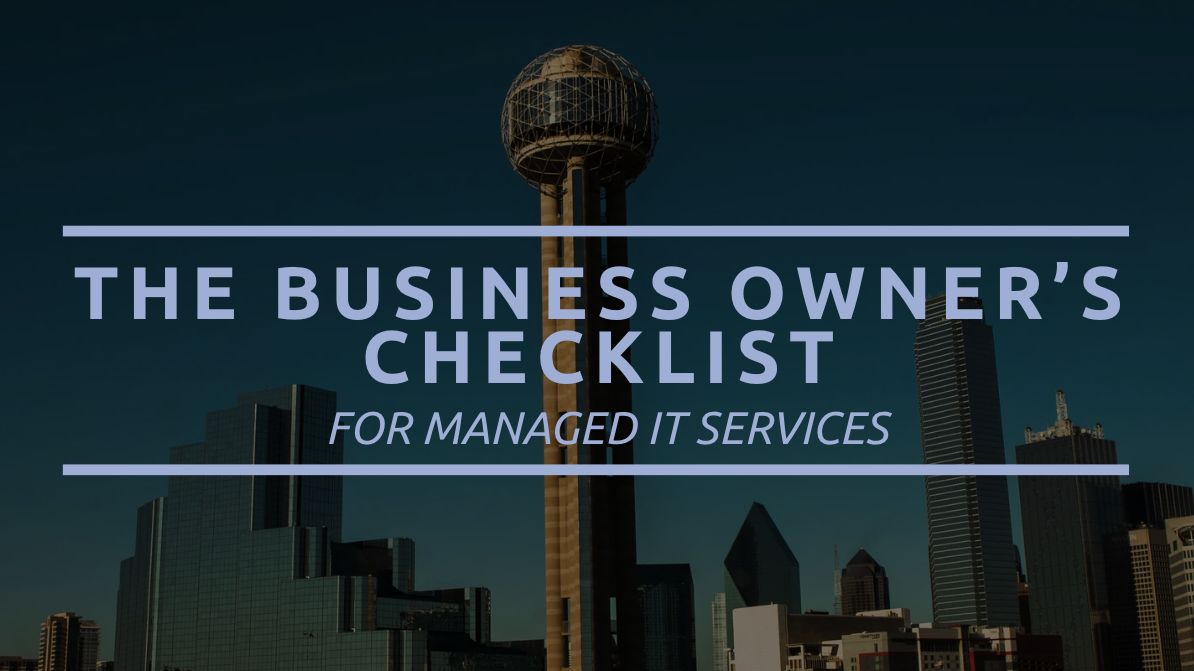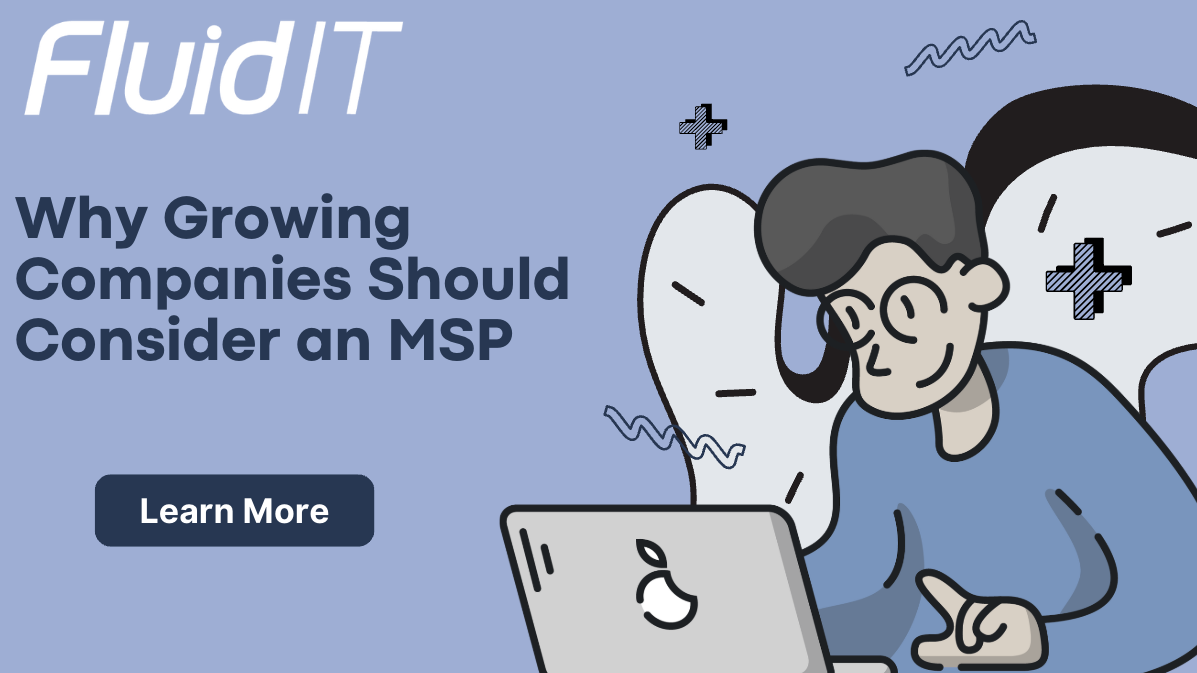The Dallas Business Owner’s Checklist for Choosing a Managed IT Services Provider in 2025
Choosing the right managed IT services provider is one of the most important decisions a Dallas business can make. The right partner will keep your...
2 min read
Sammy Mustafa
:
Jul 1, 2025 8:49:23 AM

Many Dallas-Fort Worth businesses rely on technology to power daily operations, connect with customers, and drive growth. Yet, holding onto outdated IT systems can quietly drain your budget, reduce productivity, and expose your company to serious risks. While upgrading infrastructure may seem like a major investment, the hidden costs of doing nothing can be much higher.
How Old Technology Hurts Your Business
Outdated IT infrastructure impacts your business in several ways that are often overlooked:
Older systems are more likely to fail, crash, or slow down at critical moments. Every minute your systems are down means lost productivity and potential revenue. For example, if your accounting software freezes during peak business hours, you may be unable to process transactions or serve customers, leading to missed opportunities and damaged trust.
Legacy hardware and unsupported software require frequent repairs and workarounds just to keep running. As technology ages, finding replacement parts or technicians becomes more difficult and expensive. Some organizations spend up to 75 percent of their IT budgets just keeping old systems running, leaving little room for innovation and growth.
Outdated systems are prime targets for cyberattacks. Without the latest security updates, your business is vulnerable to ransomware, data breaches, and compliance violations. The average cost of a security breach in 2024 reached $4.88 million, a 10 percent increase from previous years. Hackers often target small and medium-sized businesses with outdated infrastructure, knowing their defenses are weaker.
Slow machines, software crashes, and inefficient processes waste valuable employee time. Over months and years, these small delays add up to significant losses in operational efficiency and revenue. Instead of focusing on strategic projects, your IT team spends hours troubleshooting outdated systems.
Older infrastructure often cannot support new business needs, such as remote work, cloud integration, or modern security solutions. This limits your ability to grow, adapt, or respond to market changes quickly.
Real-World Example: Cost Savings with Modern IT
A manufacturing company in Plano transitioned from outdated systems to a managed IT model. By scheduling regular hardware upgrades and aligning technology planning with business goals, they reduced annual hardware capital expenditures by over 40 percent. Predictable budgeting and improved system performance gave them a competitive edge and peace of mind.
Why Dallas Businesses Should Act Now
Delaying IT upgrades may seem like a way to save money, but the hidden costs of downtime, security risks, and lost productivity can far exceed the price of modernization. Modern IT solutions, such as managed services and proactive hardware lifecycle management, help you avoid surprise expenses and keep your business running smoothly.
It is also important to consider whether your current IT provider has evolved with the times. Many legacy IT companies have not updated their practices or solutions to reflect the technology landscape of 2025. It is easy to stay comfortable with a provider you have worked with for years, but if they are still operating with outdated systems and approaches, it might be time for a change. At Fluid IT, we make switching IT providers seamless, painless, and easy, with minimal interruption to your business.

Choosing the right managed IT services provider is one of the most important decisions a Dallas business can make. The right partner will keep your...

As the Dallas-Fort Worth Metroplex continues to grow as a major business hub, companies across cities like Frisco, Plano, Arlington, and beyond are...

As your company grows, managing a fleet of mobile devices quickly becomes a complex and resource-intensive challenge. Security, compliance, user...